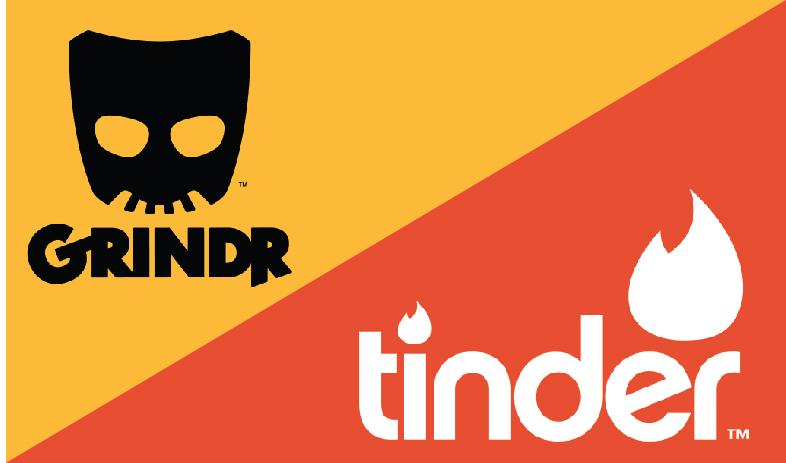Danielle sits on a park bench on a sunny day, her dark brown hair tailored to a wavy perfection, a smile on her face.
This is one of six pictures her Tinder profile displays, along with additional information – we have several mutual friends and interests.
With no last name, the only things I know are her age and what little information her profile provides. So I’m left with a decision: do I swipe left and “pass” her or do I swipe right and “like” her anonymously and hope that she likes me back?
Tinder is a free application for Apple and Android devices that allows its users to meet new people in their area and anonymously like or pass (not like) other Tinder users.
If someone you liked is interested in you as well, a screen will be displayed with the words “it’s a match.” Only when two parties mutually like each other can a dialogue through the application commence. If there’s no attraction, likes remain anonymous – no one will ever know you liked them unless they like you back.
Tinder isn’t the first incarnation of a mobile “dating” application. It’s part of a trend of applications that have come out the past few years. One of the most successful mobile dating applications services the gay community, an application called Grindr.
Grindr, launched in March 2009, has been downloaded 7 million times and has users in 192 countries. Tinder has found similar success since its founding 17 months ago.
While Grindr is an application exclusively for the gay community, Tinder does allow its users to seek homosexual matches.
Junior German major Chase Braun started using Grindr four months ago, and has used it to seek a romantic relationship rather than just for hooking up, but sometimes that is hard to find.
“In terms of finding a long lasting relationship, (Grindr) wouldn’t be the first thing I would use,” Braun said. “Maybe if you were looking for something quick and right now, then it would probably be the best way to go.”
Tinder and Grindr both use GPS technology to find potential matches in a given area. GPS, along with the increase in smartphone users, is what Grindr founder and CEO Joel Simkhai attributes to the success of Grindr.
But despite both applications using the same GPS technology to find potential matches, Braun thinks Grindr is a better fit for him – at least in the Evansville community.
“Being openly gay in southern Indiana is something that is frowned upon,” Braun said. “So for our community to have our own thing that’s popular is why I think gay people, at least in this area, would stick to Grindr rather than Tinder.”
In the past three months, Tinder has seen an increase in users by 1 million, according to an article written by the website Society and Religion.
Senior health services major Hillary Ott first downloaded Tinder six months ago and has used the application on and off.
Curiosity drew her to download the application.
“You always wonder if a person would think that you are attractive, like if there would ever be a possibility for you two to be something someday,” Ott said. “If you see someone on Tinder you’re like ‘Wow, he’s cute’ and then you end up matching up, then even if you don’t talk to him, meet up with him or anything, it still gives you a good feeling.”
After using Tinder for several months, Ott deleted her account due to messages from “creepy” guys just looking to hook up. She has started using Tinder again and has met up in public with several guys she’s had matches with after getting to know them over text for a period of time and using the application Snapchat.
Tinder uses a person’s Facebook information, such as Facebook likes, mutual friends and profile pictures. This helps the application navigate the sea of Tinder users and find people who have similar interests and mutual friends in an attempt to increase the chance of matches.
While Tinder does access a person’s Facebook information, it doesn’t post information to Facebook about actions preformed on Tinder.
Associate Professor of Sociology Andrew Buck said he finds two ideas researched in sociology help explain why people are attracted to Tinder and applications like it: people’s attraction to people who are similar and people’s desire to date outside of their groups of friends.
“There’s a long standing principle in sociology that people tend to choose mates who are socially similar. So when you go online, you choose potential mates who have the same characteristics,” Buck said. “People also tend to like to date people outside of their immediate social network because you may be stuck in a world and you’re thinking ‘I’ve got to get out of this, I need a few degrees of separation between my partner and where I am right now.’ Or, if you just want to hook up, you may not want to see that person again.”
Ott said she thinks Tinder is a fad.
“It’s a place that people wouldn’t probably go for a lasting relationship,” she said.
Fad or not, Tinder and Grindr have made headlines not only in Forbes and the New York Times, but also at the Sochi Winter Olympic Games due to both applications’ usage by Olympians.
“It doesn’t surprise me that Tinder has gotten so popular,” Ott said. “I feel like Match.com, eHarmony and those kinds of things are more for people who are getting older that aren’t able to find someone outside of work or meet in person, but I think Tinder is geared toward people our age because it’s a quick easy way for people to get to know each other in a relatively close area.”



